5. Park Chan-Wook
When critics saw Park Chan-Wook’s masterful Oldboy, it became apparent that he was a filmmaker to be reckoned with. As cinema-legend Quentin Tarantino heaped praise on the film, and audiences began to see the film he soon became a household name.
Oldboy tells the story of a man kidnapped and locked inside a room for 15 years. After he is finally released without explanation, he seeks not only revenge but an answer for his imprisonment. The film was based on an original Manga, but becomes a completely different and much more harrowing story.
The shocking twist involving incest left the audience rattled, a subject that mainstream audiences is not used to. The film spawned an obligatory remake by Spike Lee, which is interesting but not nearly as viscerally entertaining (and disturbing) as Park Chan-Wook’s masterpiece.
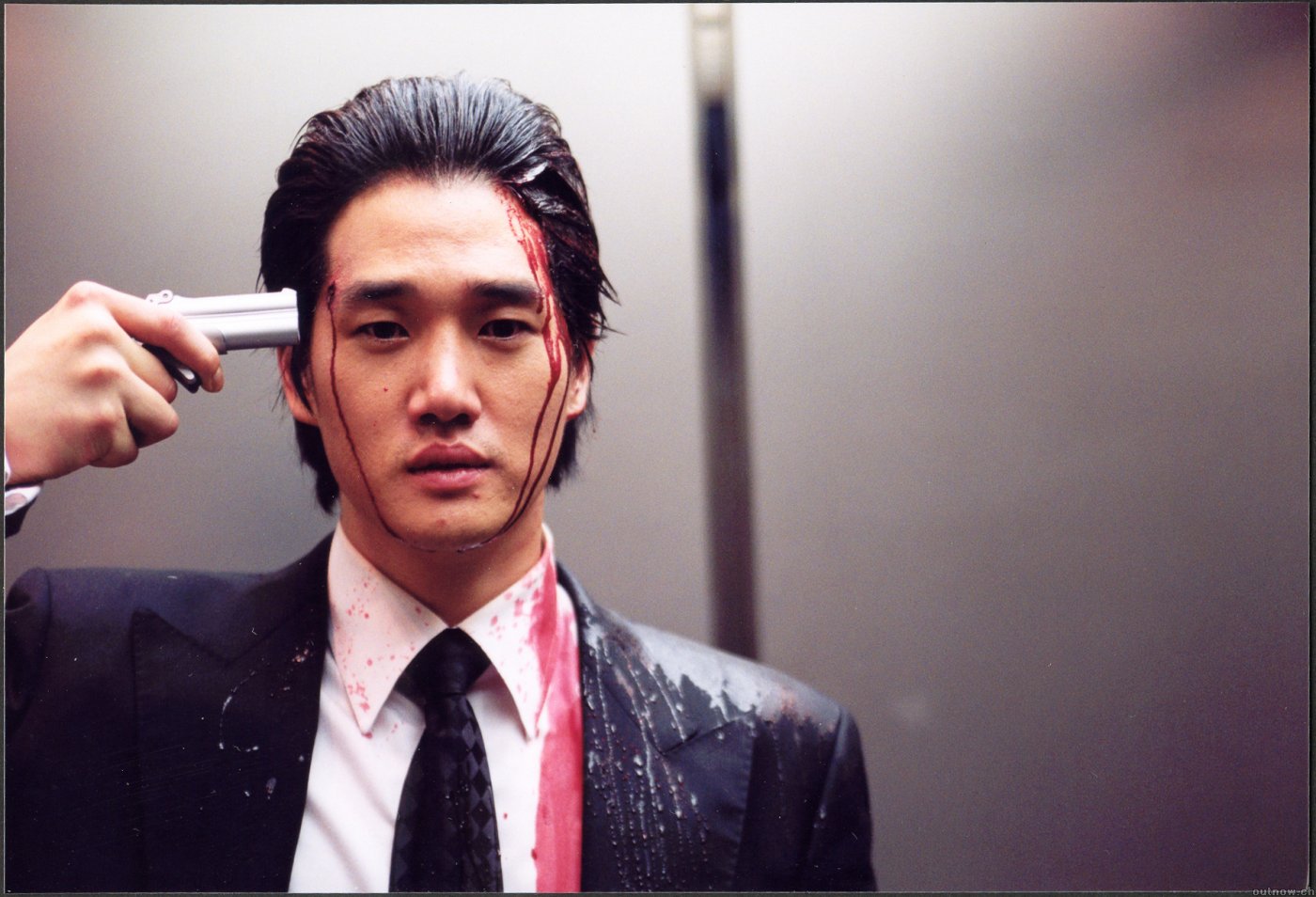
Many would indeed find themselves shocked with its content which was naturally the filmmaker’s intent. He has said himself that he finds ”no enjoyment watching films that evoke passivity,” so it’s no surprise have moments of squeamish violence, graphic sexuality or taboo subjects.
The film was the second part of his infamous revenge trilogy, which started with the less successful but still worthwhile Sympathy for Mr. Vengeance and ended with Lady Vengeance. All three films deal with the usual subject of the futility of revenge, yet become something very special with Park directing behind the scenes.
After he finished off his vengeance trilogy, he directed the off-beat romantic comedy I’m a Cyborg and That’s Okay. Veering from the subject of revenge, it tells the romance between mentally disturbed people in a mental hospital. It’s fraught with magical realism using Park’s detailed eye for epic visuals. He followed this up with Thirst, following a priest’s transformation into vampirism.
In this time he was courted by Hollywood, and finally agreed to film Wentworth Miller’s script Stoker. Though his American debut does not equal the extreme violence most of his other films are filled with, it does have have all the traits of his authorship; it’s both beautiful, full of monsteriously flawed people you can’t help but root for and, most notably, death by scissors.
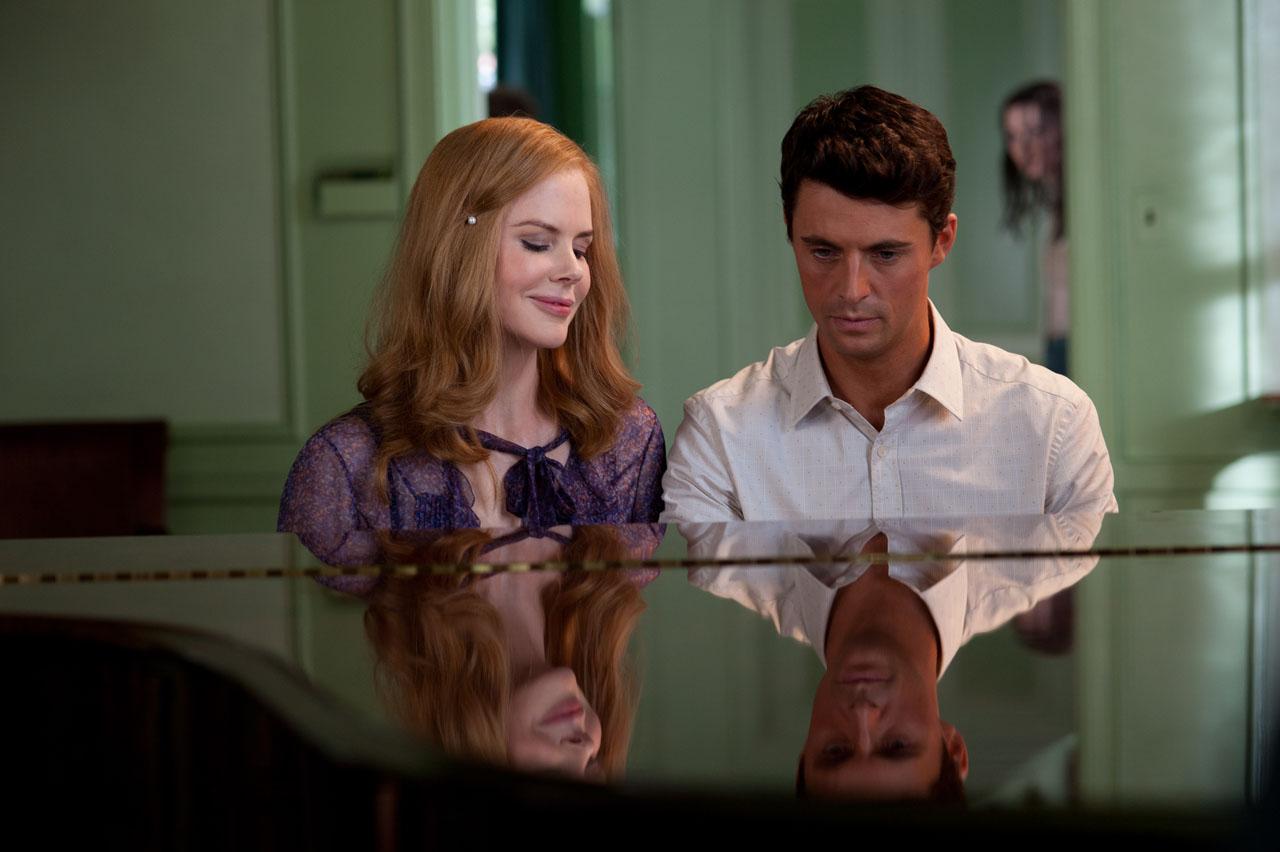
Park Chan-Wook is known for being a master of framing, using various camera techniques ranging from wide shots, tracking shot and even documentary style filming. His new film The Handmaiden based on the historical novel Fingersmith by Sarah Waters has already received much acclaim before its official release, so expectations are high.
Park will expand his oevre by doing a science-fiction film next which will involve body-horror. Seeing him tackle this kind of genre, is something that both the audience and critics alike will find no less exciting.
4. Lars von Trier
As co-founder of the illustrious Dogme 95 movement, the Danish filmmakers is very well known among film students and cinematic connoisseur. Those that have gazed enough of his filmography will also know that none of them bode easy viewing.
Constantly challenging how stories are told, either through soulful narration by Max von Sydow in Europe, splitting a story in chapters complete with the title above a scenic background as he does in Breaking The Waves, showing the end in the beginning of his apocalyptic Melancholia, making a period piece without the period setting in Dogville or fuelling the picture with meta-commentary as well as satirizing his own style of filmmaking in Nymphomaniac Part One and Two, Lars is undaunted to try anything.
Like most of the filmmakers on this list, his focus is not just on the intellect (though his films often have loads of intellectual subtext) but on emotion. You are meant to feel something, sometimes that means being sick to your stick on what you’re seeing, sometimes it means shedding a few tears.

Needless to say, his films don’t shy away from serious controversy; from close-ups of penetration, scenes of animal violence (not to mention a talking fox), genital mutilation, a scene sympathizing with a pedophile for never acting on his desires to grim dissertations of nihilism.
His last film Nymphomaniac Part 2, seems to almost end on a positive note, only to end on such a nihilistic punchline which will either enrage the viewer or applaud the director for his tenacity. It’s such a ridiculously grim final that would make the most devout Nietzschean blush.
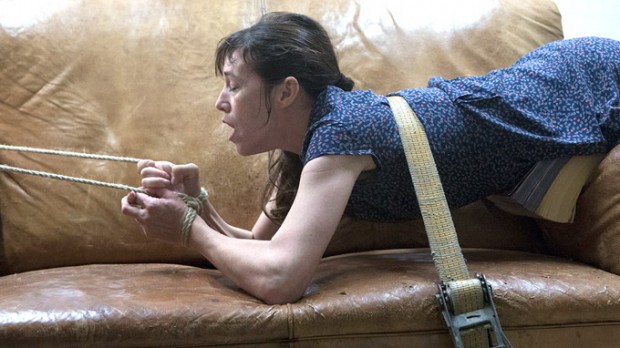
Despite this, there’s no denying his grasp on the medium of film. In all his films, which are often trilogies not in the narrative sense but in themes, he experiments with different cinematic techniques; scenes of gritty realism could be followed by a picturesque setpiece, from color to black and white, from moments where the fourth wall is gleefully broken. But for all his cinematic flair, Lars certainly doesn’t have any illusions about being a filmmakers.
Confessing himself to be ”a simple masturbator of the silver screen”, he knows that no matter how far a film-author reaches for authenticity, film always be just a series of moving pictures. The players follow a script or some guideline, be it through internal improvisations or through the guidance of a director. The camera is staged and records a moment created for the audience’s enjoyment. And beyond the screen people deal with the real world.
But none of this takes away the power of his films. Whether you like him or not, there’s no denying he’s the genuine article. Never selling out, even when the great Steven Spielberg had offered him a script, this list would could not be complete without his name attached.
3. Pier Paolo Pasolini
This list could not be complete without one of the most notorious and innovative filmmakers of the 20th century; Pier Paolo Pasolini. The Italian born director had dedicated his life for the sake of his art, remaining mercilessly loyal to his convictions until his tragic murder in 1975, never witnessing the release of his last film Salo: 120 Days of Sodom, which would become one of the most controversial films of all time.
The defiant artist started his film career rather late in his life, pushing forty as he was adapting his own screenplay Accattone. Though often ascribed as being part of the neo-realism film movement, there is a often a certain romanticism surrounding his characters in the slums. Being an avowed communist, it should be no wonder that his films seem to glorify those outside of the bourgeoisie culture, while those who are part of it become lost spiritually.
This is most notably portrayed in his classic Teorema in which an upper-class family is visited by a charming stranger who enrich their lives in ways their lifestyles never could. When this stranger suddenly leaves, his void begins to tear the family apart in horrifying ways.
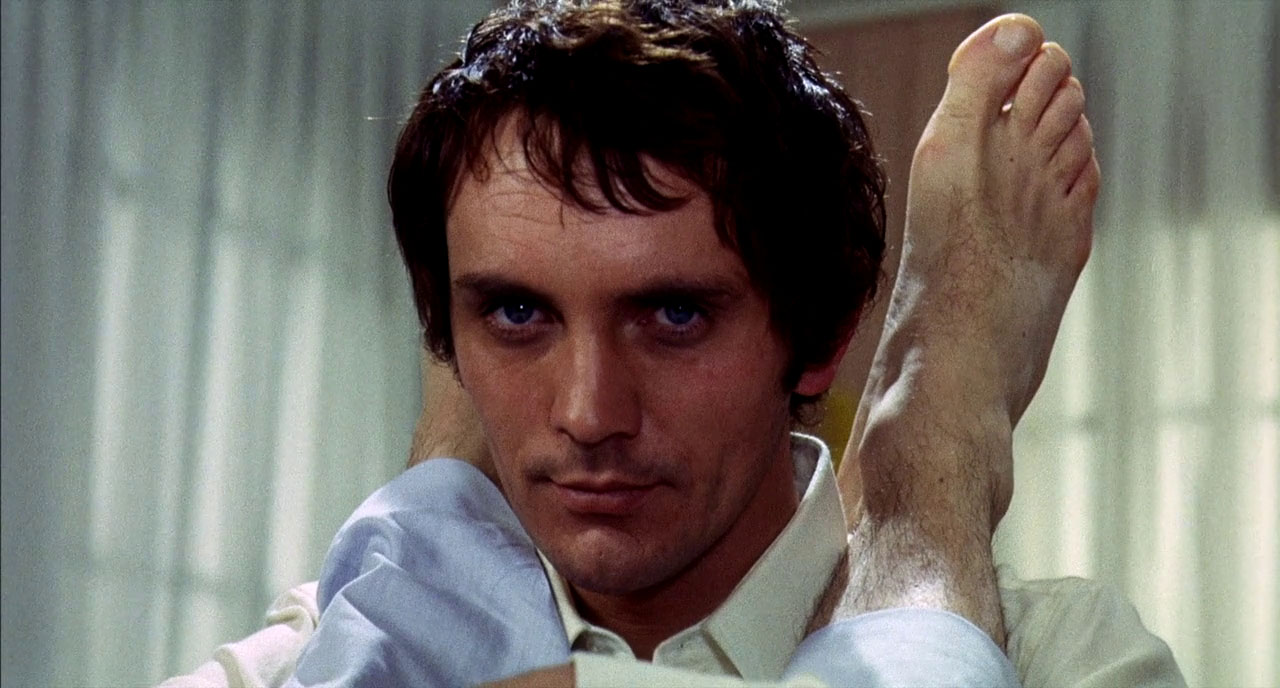
With the emergence of booming capitalism and consumerism, Pier feared for the soul of his country. What many of his country men considered an ‘economic miracle’ he saw as a ”a worse form of fascism than the classic variety.” His ultimate indictment of both the fascist and consumerist culture would come in his final film Salo: 120 Days of Sodom.
Based on Marquis de Sade’s book, transposing the Victorian with the fascist Italy, it follows the story of wealthy men kidnapping the young men and women for their sadistic and perverted gains. The willingness of the victims to be tortured and eventually slaughtered is telling, they are the poor indoctrinated masses who see no other way and accept what they’ve been given.
Even if this means eating feces- its most famous revolting scene. Those or privileged however, the ones that devised the system its only benefitters lose their soul. An outcome that Pier saw as inevitable.
Ultimately Pier Passolini’s films are essential commentaries on the broken world left behind after the fall of fascism. Knowing full well that the uncountable victims of the second World-war was partly the cause of utopian wishfulfillment, the defiant artist chose to expose this failed dream with all his cinematic vigor. It’s an ugly truth which is already hard to bear, let alone portrayed in such brutal manner.
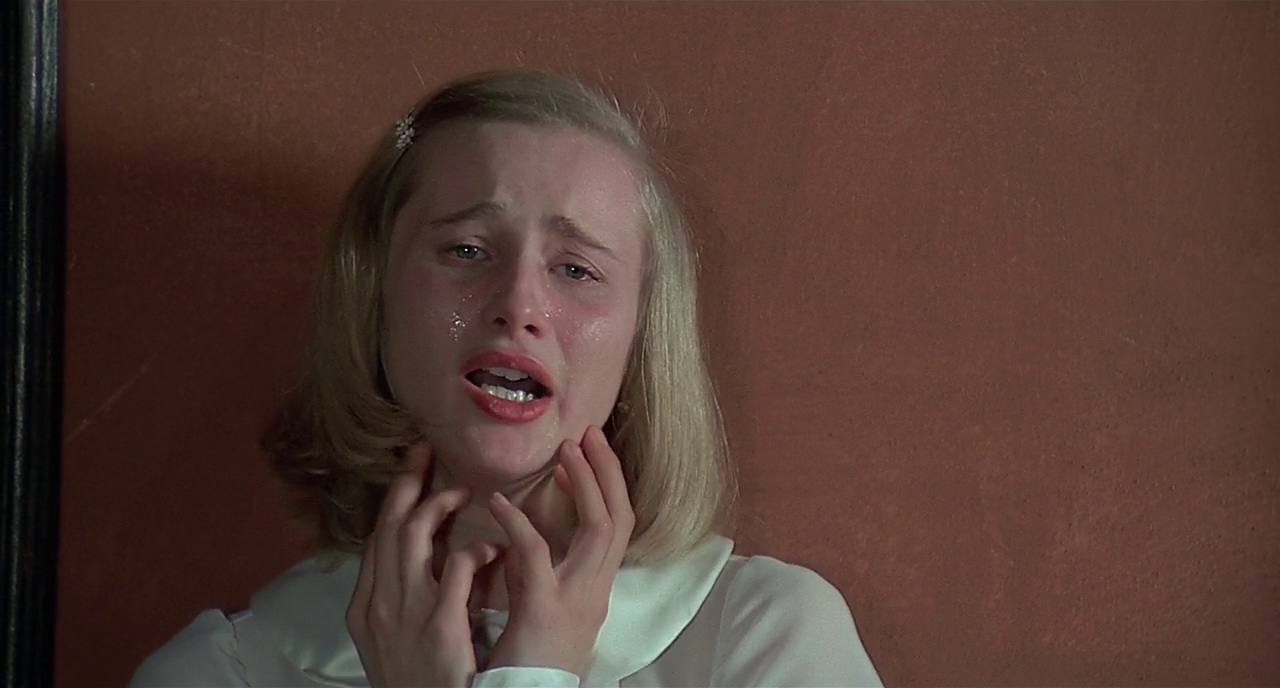
A true contrarian in every sense of the word; both a catholic and atheist, a proud gay man yet taking comfort in the traditional values of the time, a communist who alienated his own party, Passolini was hard to define but there’s no denying his uncompromising nature.
As his eventual murder remains unsolved, rumors have floated around that maybe his incendiary statements through art and speech might have inspired is death. Whether this is true or not, we might never know. One might wonder what he would say about our modern world.
The age of capitalism has only gotten bigger, the promises of unlimited consumption were simply too seductive to ignore. He died far too early, there surely would have been more masterpieces in his wake. The cinephiles of now and of the future will however be forever grateful for what he left behind.
2. Werner Herzog
When François Truffaut calls a director ”the most important filmmaker alive,” one should pay attention to that director’s body of work. That director is Werner Herzog, who after his expansive filmography (and still going strong even at the age of 74) has become a near mythological figure. So much so that the truth about him can be nearly impossible to find out.
His life is brimming with the same madness he portrays in his film, and even in his documentaries, he himself admitted that he goes beyond observable facts and instead, reaches for the ‘ecstatic truth.”
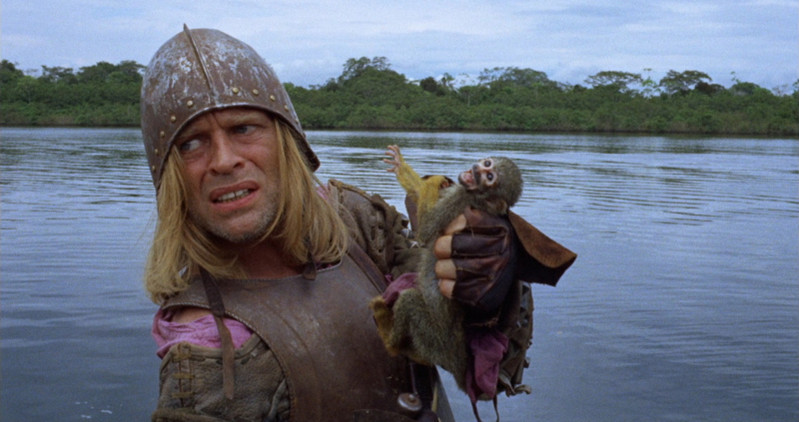
What makes Werner so prolific is different than most of the directors on this list. Though his career isn’t empty of controversy, it’s not through his depiction of either graphic sexuality or violence but rather in his fearlessness. In how far he is willing to in order to fulfill his vision. The risks the director takes in order to fulfill his vision had lead to a series of nearly fatal accidents.
The behind scenes stories are nearly as fascinating as the films themselves; from the star of the film shooting the tip of an extras finger, trying to obtain herd of monkey’s for the final shot, filming illegally in China etc. Good conditions become secondary, the film must be made no matter what.
Aguirre: The Wrath of God details the hopeless journey of the conquestor and his men to reach the non-existent El-Dorado. The film would have one of his signature traits; his obsession about the sad loner with an impossible dream. Yet however the director might admire conviction of such magnitude, he does not however fully romanticizes them. Showing that even such admirable traits can lead to disastrous consequences.
In one of his most popular documentaries Grizzly Man, Werner documents Timothy Treadwell, a man who wanted to live in harmony with the bears. Like many of Werner’s films, it involves man facing off against nature, the fruitless pursuit of conquering the elements.
Timothy’s attempts ultimately lead to his devourment not only of himself, but of his devoted girlfriend too. The creatures he loved so dear, would inevitably betray him. In this sense, Werner also exposes both the arrogance of man, how easy it is for a dream to become hopelessly utopian.
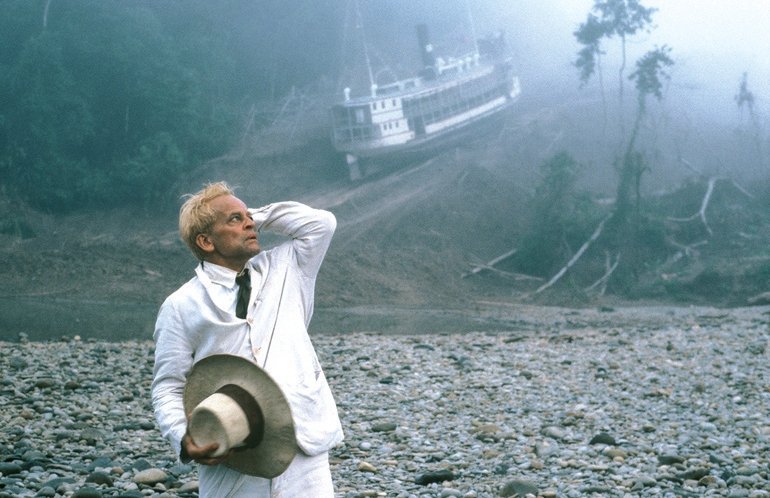
But Werner is not interested in making a scholarly statement. In his mind, film and real life are much the same and may be confused with one and other. Infusing poetic license to his documentaries, he believes he will hit a deeper truth, something far more important to our understanding of the human nature.
He’s not interested in political statements or historical accuracy, to him these are boring cliche’s. Werner’s film is fueled by a lust for life, hungry to document both the absurdity and darkness of his subjects.
His films can both be hilarious and sad, ugly and beautiful. He doesn’t care about typical conventions, his films can have uneven pacing, characters can disappear in and out, it’s Werner just doing what he wants.
And if Werner wants to put an actual steamboat atop a Peruvian mountain in Fitzcarraldo instead of doing the same and sensible thing and use miniature, if he wants to film illegal, if he wants to illegally film in China, he will do that, if he wants to go to Antarctica to film a documentary then Werner will do that.
The conditions are secondary, the film remains most important. And one can be horrified or turn their heads, but the history of Cinema would look a lot bleaker without the wacked-out brilliance which epitomizes Werner Herzog.
1. Michael Haneke
In The Seventh Continent, a family of three commit suicide. The film offers no definitive reason why. There is little dialog spoken, none of them exhibit signs of typical depression, none of them are part of a suicidal cult. Nobody shares a heartfelt monologue about there is no other way.
The viewer will seek clues to the reasons, maybe it’s in constant mundane scenes of every day. Maybe it’s during that scene where the family drive at night and witness the aftermath of a car accident. The parents seem uncomfortable, like they share an unspoken realization. But about what? Maybe about the futility of existence, preferring to die nobly with each other- but that’s just another hyperbole.
In the end, there is simply no definitive answer and the fact that there isn’t, is both frustrating and brilliant. It’s a trademark of Haneke’s series of films, refusing ease the audience with a cut and dry explanation because, as Haneke said himself ”…there Is never just one truth, there is only personal truth.”
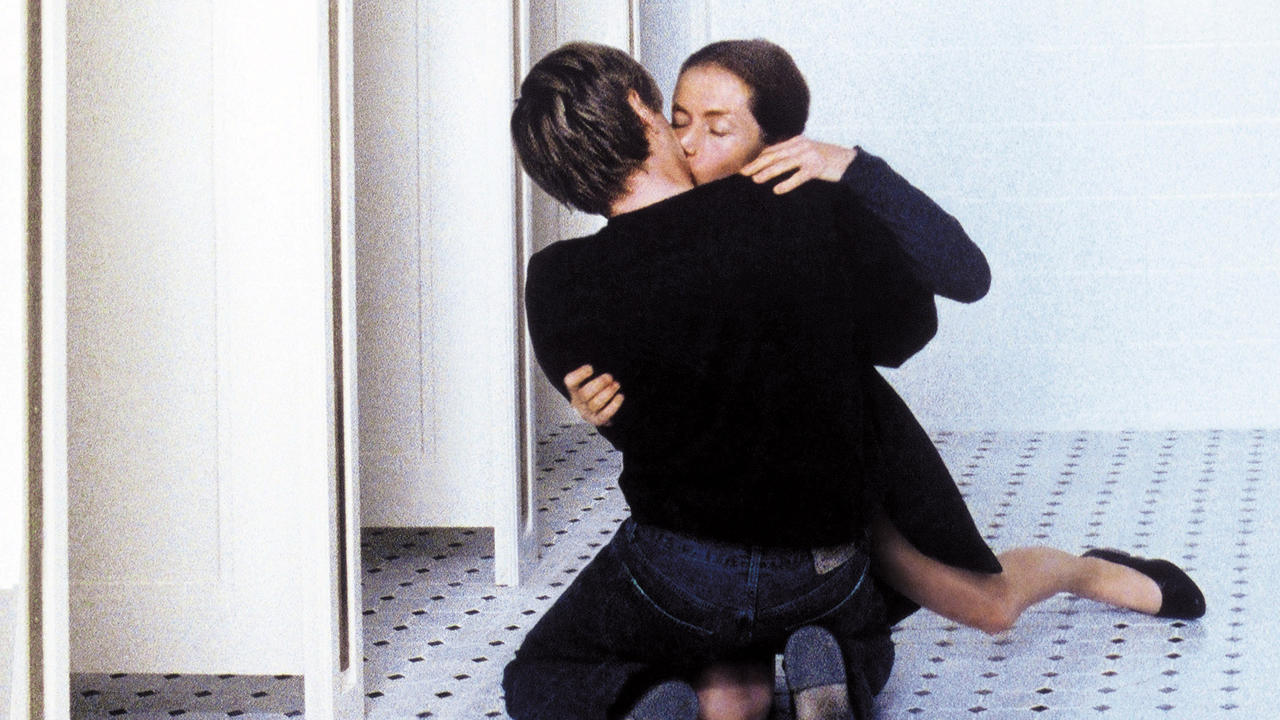
Preferring the complexity of novels, Haneke wants to personalize the film for the viewer. Make it mean something different for every individual. In a way his films could be perceived as existential mystery novels but forcing the viewer to ask themselves; ”what does the film mean to me?”
Revolting at Hollywood sentiment, taking art as seriously as possible, his films are as brutal as they come. In Funny Games, we have all the ingredients of a Hollywood thriller; two young men take a family hostage. These young men are cold and vicious and we want the family to survive- and the film acknowledges that.
The apparent leader of the duo breaks the fourth wall and teases the audience. The audience wants good to win and bad to lose, they desire a crowdpleaser, but the film refuses this at every level. Even when finally one the main characters retrieves a weapon and shoots one of the young men, the other young man simply grabs a remote and rewinds everything back and quickly grabs the gun before the woman can get to it. Haneke is teaching the audience a lesson from enjoying all these generic thrillers in the past.
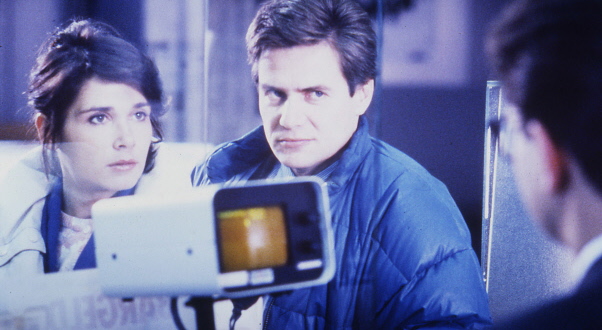
All his films are both emotional and intellectual exercises, raising big questions without a simple answer, tackling big subjects and leaving the opinion to the viewer. His films are rarely, what one could consider fun but maybe cinema isn’t always supposed to be. Haneke feels the artist has a duty to his artform; to be as honest as possible.
In The Seventh Continent, he had all the opportunity to make the collective suicide seem noble or poignant but that would be dishonest. Instead, he shows the mother begging her recently poisoned daughter to come back from the dead, it shows the father too sick to comfort his puking and dying wife, it shows their lifeless eyes watching white noise on the TV screen.
Throughout the film, we see this poster of a beautiful beach, the perfect vacation. But in the end, it’s just a poster, a fabrication of reality. Cinema is such a fabrication too, but it sometimes comes it awfully close to the truth. And if filmmaker came anywhere close, it would be Michael Haneke.
Author Bio: Chris van Dijk is a writer and a self-proclaimed cinematic-connoisseur who started his unhealthy obsession with film at a very young age. He’s famous for being an incredible slob, taking himself way too seriously and getting along brilliantly with anyone who agrees with him.